
Press Enter to search

How to List Research Experience on Your Resume
Applying for a role that requires research skills? Here’s how to list your research experience on a resume, with examples you can follow.
3 years ago • 7 min read
Research experience isn’t just for science and academia. Research is a valuable skill that’s required for a number of roles and industries, which means it almost certainly has a place on your resume. And no — that doesn’t mean writing “research” in your skills section and moving on.
Why you should list research experience on your resume
If you’re applying for a job that involves research, listing research experience is a no-brainer. Research-specific positions, scientific jobs like Research Assistants , Lab Assistants or Technicians, graduate school applications, and most jobs in academia all require evidence of research skills. Even outside these positions, research experience demonstrates valuable transferable skills, like critical thinking and attention to detail . Which is not to say that you need to include research experience on every resume — if it makes you a stronger candidate, include it, but if it isn’t relevant and doesn’t add anything else to your candidacy, leave it off.
Research experience resume example
Before we dive right in, here's a sample resume that emphasizes research skills. You can use this as a template or as inspiration to write your own resume from scratch.

Download: PDF | Google Docs
How to list research experience in your resume
Like a lot of desirable skills, research is a soft skill , meaning it’s not something you can claim as an objective fact on your resume without backing it up. What you can do instead is prove it — what previous role involved a lot of research? What resume accomplishments do you have that highlight your research experience? Showing how you used research skills in action is the best way to demonstrate the value you could bring to the company and role you’re applying for.
There are a number of ways you can highlight research experience on your resume:
In a dedicated section
In your work experience, in your education section, listing research publications, in a projects section, in your skills section, in your resume summary.
Let's take a look at each of these options in a little more depth. But first, let's look at an annotated example to help set the context.
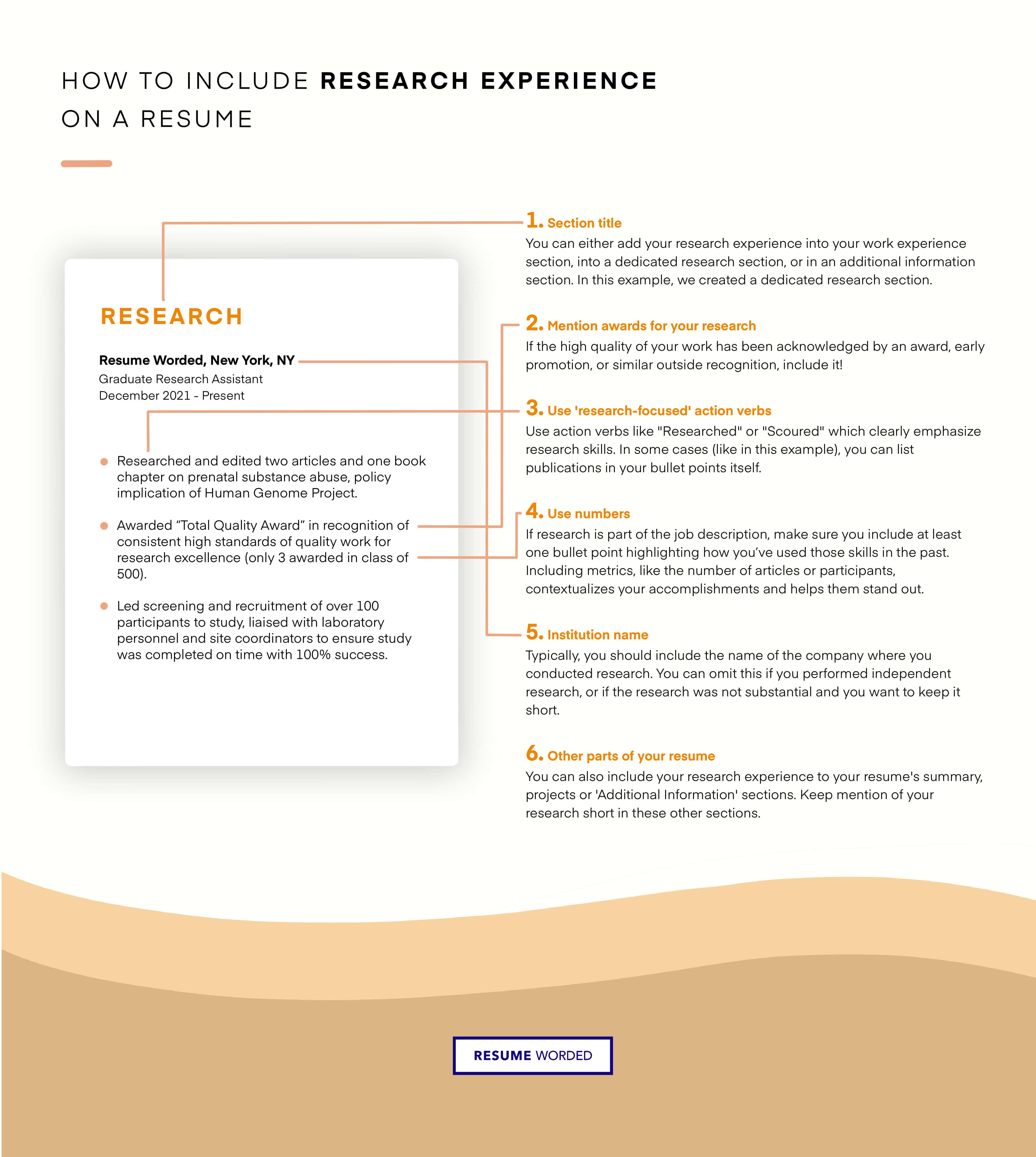
If you come from a research background, you might want to title your work experience ‘Research.’ Alternatively, you could create two experience sections — one titled ‘Work Experience’ and one titled ‘Research Experience’ — if you also have a lot of non-research experience but want to highlight your most relevant experience first. You can go into more detail when applying for a research-focused role by describing the project and specifying the nature of the research and your role in it.
More information: How to title different sections of your resume
Including research experience in your main work experience section is appropriate if it was paid work or if it was your most recent and relevant experience. List the employer — for example, the university or research department — job title, dates, and accomplishments, just like you would any other work experience.
More information: How to list your work experience on your resume
If you’re a current student or recent graduate, you can list your education section at the top of your resume. You can also make this section a little more comprehensive if you don’t have a lot of work experience, by including things like awards, coursework, and academic research.
If you undertook research as part of your studies and it demonstrates skills relevant to the job you’re applying for, list your research accomplishments in bullet points under the education section of your resume.
More information: The must-haves when writing your education on your resume
If you have a lot of publications that came out of your research, and you want to draw attention to them — and if they’re relevant to the job you’re applying for — consider creating a separate publications section . Formal publications like these are an excellent way to add credibility to your research experience.
List each publication in a new bullet point with the title, year, and name of the magazine, website, or journal. Academic publications can be listed more formally if it’s relevant, like if you’re applying for graduate school or a role in academia.
When it comes to listing research on your resume, like other soft skills, you need to show you’ve used this skill in your previous roles by showcasing your research related accomplishments. Upload your resume to the tool below to find out if your resume highlights your most relevant research experience and achievements.
If your research experience is less extensive or wasn’t quite relevant enough to include alongside your work experience or education, you can still highlight it in a projects section. Keep this brief and include 1-2 bullet points showcasing your key research accomplishments.
More information: How to list projects on a resume
Research skills can go in your skills section — as long as they’re hard skills. Steer clear of listing generic skills like “Research” — instead, use our keyword finder to look for relevant skills and keywords and include specific hard skills like data analysis, project management, software proficiency, and certifications.
You can also use the skills search tool below to get a list of hard skills relevant to the research-focused role you’re applying for.
More information: How to write a resume skills section
If you’re applying for a position where research experience is essential, consider emphasizing your experience by including a short resume summary at the top of your resume. This should include the title of the job you’re applying for and a brief overview of your background and key skills.
More information: Generate a summary for your resume
Examples of listing research experience on your resume
No matter where you choose to include it, always list research experience in concise, accomplishment-focused bullet points . These should follow the structure of action verb + what you did + what the result was. Here are some examples of resume bullet points you can use or modify to suit your own research experiences.
Highlight research projects
- Assisted with cell development research projects as part of the Leukemia Research team — identifying cell changes, determining cell counts and coulter counters with 98% accuracy.
If you have significant research experience, describe it! The more relevant it is to the position you’re applying for, the more detail you can go into. Make sure to specify exactly what stages of research you worked on and what your contribution was.
Mention awards for your research
- Awarded “Total Quality Award” in recognition of consistent high standards of quality work for research excellence (only 3 awarded in class of 500).
If the high quality of your work has been acknowledged by an award, early promotion , or similar outside recognition, include it! In addition to the name of the award or accolade, don’t forget to specify context (e.g. 'out of class of 500 people' to increase its credibility.
Demonstrate technical expertise
- Created over 75 3D models with CAD tools such as Solidworks and ANSYS.
If you have experience with specific software or tools that you’ll be using in the position you’re applying for, include a bullet point accomplishment specifying how you’ve used them. While this isn't direct 'research' experience, it uses tools that are relevant to research projects — this is a good way of showing that you have research skill sets without having formal research experience.
Use 'research-focused' action verbs
- Researched and edited two articles and one book chapter on prenatal substance abuse, policy implication of Human Genome Project.
Use action verbs like "Researched" or "Scoured" which clearly emphasize research skills. In some cases (like in this example), you can list publications in your bullet points itself. If you’ve authored academic papers, books, or articles, this is a great way to show the validity and importance of your research.
Include accomplishments related to research studies
- Oversaw screening and recruitment of over 100 participants to study, liaised with laboratory personnel and site coordinators to ensure study is completed on time with 100% success.
Not all research positions involve pure research. Make sure you highlight appropriate related accomplishments, like managing research study participant data and enrolments or managing a team of research assistants.
Include accomplishments relating to research in your field
- Conducted legal research; organized and analyzed data and evidence for over 50 cases annually.
If research is part of the job description, make sure you include at least one bullet point highlighting how you’ve used those skills in the past. Including metrics, like the number of cases you’ve researched, contextualizes your accomplishments and helps them stand out.
- Conducted marketing research for both buy-side and sell-side resulting in 15 strong leads.
Research isn’t just limited to science and academia. Demonstrate your skills in action by the context and end results of your research, like the number of leads it generated or the increase in sales figures.
Spread the word
Hiring manager’s guide: how to list work experience on your resume, you lied on your resume and got the job. what now, keep reading, how to show bilingualism on your resume (with examples), oops what to do if there’s a mistake on your resume, getting the basics right: resume line spacing, subscribe to our newsletter.
Stay updated with Resume Worded by signing up for our newsletter.
🎉 Awesome! Now check your inbox and click the link to confirm your subscription.
Please enter a valid email address
Oops! There was an error sending the email, please try later

Thank you for the checklist! I realized I was making so many mistakes on my resume that I've now fixed. I'm much more confident in my resume now.

Explore Jobs
- Jobs Near Me
- Remote Jobs
- Full Time Jobs
- Part Time Jobs
- Entry Level Jobs
- Work From Home Jobs
Find Specific Jobs
- $15 Per Hour Jobs
- $20 Per Hour Jobs
- Hiring Immediately Jobs
- High School Jobs
- H1b Visa Jobs
Explore Careers
- Business And Financial
- Architecture And Engineering
- Computer And Mathematical
Explore Professions
- What They Do
- Certifications
- Demographics
Best Companies
- Health Care
- Fortune 500
Explore Companies
- CEO And Executies
- Resume Builder
- Career Advice
- Explore Majors
- Questions And Answers
- Interview Questions
How To Put Research On Your Resume (With Examples)
- How To Write A Resume
- How To Build A Resume
- Specific Resume Words
- Action Verbs On A resume
- Words To Describe Yourself
- Resume Outline
- How To Make A Resume
- How To Make A Resume On Word
- How To Write A Resume Profile
- General Resume Examples
- Resume With No Experience
- Student Resume
- College Resume
- Entry Level Resume
- Military Resume
- Internship Resume
- First Resume
- College Application Resume
- 2 Page Resume
- Blank Resume Template
- College Freshman Resume
- Work History
- Resume Templates
- Resume Tips
- Best Resume Writing Services
- Things To Avoid On A Resume
- Resume Paper To Use
- What To Include In A Resume
- How To Write A Bio
- How To Write A Personal Statement
- Lied on Your Resume?
- Avoid Age Discrimination
- Words and Phrases You Shouldn't Include in Your Resume
- How Many Skills Should You List On A Resume
- Send A Resume As A Pdf
- Resume Critique
- Make A Resume Stand Out
- Resume Spelling
- Resume Past Or Present Tense
- How To List Projects On A resume
- Best Resume Action Words
- How To Quantify Your Resume
- Resume Bullet Points
- Are Resume Writers Worth It
- How Many Jobs To List On Resume
- Please Find Attached My Resume
- How To List Contract Work On Your Resume
- How To Put Research On Your Resume
- What Is A CV?
- CV Vs Resume
- CV Templates
- CV Examples
Find a Job You Really Want In
Research experiences and skills are an incredibly important aspect of many job applications, so it’s important to know how to put them on your resume correctly. Hiring managers and recruiters want employees who can help drive innovation by being able to apply research skills to problem solve and come up with creative growth solutions. If you’re a job seeker looking to include your research skills on a resume , we’ll go over how to list research on resume, where you can include it on a resume, and give you some examples. Key Takeaways: If you don’t have traditional research experience, highlight the skills used for research that you’ve used in past jobs. Consider creating a separate research section in your resume if you have a lot of research experience or merge sections, depending on which section you want to bolster with research. Research experience is one of the best assets to include on a resume so be on the lookout for more opportunities. In This Article Skip to section What are research skills? Where to put research experience on your resume How to include research on your resume Examples of research on a resume How to put research on your resume FAQ References Sign Up For More Advice and Jobs Show More What are research skills?
Research skills are any skills related to your ability to locate, extract, organize, and evaluate data relevant to a particular subject. It also involves investigation, critical thinking , and presenting or using the findings in a meaningful way.
Depending on what job you’re applying for, research skills could make or break your ability to land the job. Almost every job requires some research skills and you probably already have some of those skills mastered by now.
For most careers, research is a vital process to be able to answer questions. “Research skills” are not a single skill, but multiple ones put together.
Some skills that are necessary for research are organization, problem-solving, critical thinking, communication, and specific technical skills, like coding, Excel, and copywriting.
Where to put research experience on your resume
Including research experience and skills on a resume can be incredibly flexible. When thinking about how to add it to your resume, you want to consider how the research experience adds to your resume.
Your research experience can be included in a few different sections of your resume. Some of those sections include:
Academic accomplishments
Research experience
Work experience/history
College activities
Volunteer work
Presentations and publications
Skills section
If you’ve had smaller research roles but no “official” research experience, you can highlight the skills associated with the types of research mentioned above in your job description under the work history section in your resume.
If your job history is a research position, then naturally, you would include research under the work history section. You can also merge your sections depending on what type of position you are applying for.
For example, you could create a “Research and Education” section or a “Research and Publications” section. If your research is not related to your education and you don’t have any publications, you can also detail it in a separate “Research” section in your resume.
How to include research on your resume
To include your research on your resume, you should gather all the necessary information and then quantify your accomplishments to fit into specific sections. Here is a more detailed list of how to write about research experience in resume:
Gather all the necessary information. The first step is to collect all of the important details like the title of the research project, the location of the research project, the principal investigator of the project (if applicable), and the dates of the project. You will list these details much like you would list a company you have worked for in the past.
Read the job description carefully. Every resume and cover letter you write should be tailored to the job you’re applying for. When a hiring manager puts a necessary qualification in their job posting, you must be sure to include it in your resume.
Make sure that you highlight the right types of research skills on your job applications and resumes.
Quantify your accomplishments. When describing your role on the project, you will want to summarize your accomplishments and deliverables. Hiring managers and recruiters love seeing numbers. When you write out the deliverables from your project, make sure you quantify them.
Incorporate into your work history section. If there were times when you used your research skills in your past employment opportunities, include them in your work experience section. You can also include publications, conferences you may have presented at, and any awards or recognition your research had received.
If you have completed research in an academic setting, then presentations (oral and poster) are an important part of the research process. You should include those details along with the titles of your publications.
Add to your research section. Other aspects of research that you can detail to make your application more competitive are adding skills specific to your project to the skills section of your resume.
These skills will vary depending on the subject matter, but some examples include coding languages, interviewing skills, any software you used and are proficient in using, managerial skills , and public speaking if you have presented your research at conferences.
Add research to your skills section. If the specific research you did is less important than the skills you used to perform it, highlight that in your skills section. That way, you don’t have to take up a lot of work or education history with slightly irrelevant information, but hiring managers can still see you have research skills.
Just be sure you’re more specific about a research methodology you’re an expert in because the skills section doesn’t give you as much room to explain how you leveraged these abilities.
Sprinkle research throughout your resume. If you have a lot of experience performing research in professional, volunteer, and educational settings, pepper it in a few different sections. The more hands-on experience you have with research, the better (for jobs that require research).
Examples of research on a resume
Let’s look at some examples of how research can be included on a resume:
University research example
EDUCATION Undergraduate Thesis, University of Connecticut, Dec. 2017-May 2018 Worked alongside UCONN English Department head Penelope Victeri to research the poetry of New England writers of the 20th century. Explored common themes across the works of Elizabeth Bishop, Wallace Stevens, and Robert Lowell. Performed online and in-person research on historical documents relating to each author , including information on the political, religious, and economic landscape of the US at the time. Analyzed poetic works of each author and drew on similar contemporary regional authors’ works. Prepared 20,000 words thesis entitled “Place, Allegory, and Religion: Three 20th Century New England Poets” and defended my written arguments to a panel of English professors.
Customer service research example
WORK EXPERIENCE Conducted interviews with 20 customers each week to gain insight into the user experience with company products Used Google analytics to determine which pages were driving most web traffic, and increased traffic by 11% Reviewed thousands of customer surveys and compiled findings into monthly reports with graphic findings Presented at weekly marketing meeting to inform marketing team of trends in customer experience with our products
Laboratory research example
RESEARCH Conducted experiments on rat brains by introducing various novel chemical compounds and levels of oxygen Ran electricity through brain slices to view interaction of different chemical compounds on active brain cells Prepared sterile samples for daily check and maintained 89% percent yield over the course of a 3-month study Presented findings in a final 15 -page research report and presentation to the Research and Development team
Examples of common research skills to list on your resume
Here are examples of research skills in action that you may have overlooked:
Searching for local business competition
Sending out customer satisfaction surveys
Summarizing current policies and laws in effect for a particular topic
Creating lesson plans based on current education standards
Reading literature reviews and implementing changes in clinical practice
Attention to detail
Problem-solving skills
Critical thinking
Project management skills
Communication skills
How to put research on your resume FAQ
Why are research skills important?
Research skills are important because they can help you identify a problem, gather information, and evaluate that information for relevancy. Including your research skills on a resume will show hiring managers that you have the ability to suggest new ideas and help their organization adapt and change as the industry changes.
What are research skills?
Some common research skills include:
critical thinking
Computer skills
Can I list research as a skill?
Yes, you can list research as a skill on your resume. Including your research skills in your resume can help show a potential employer that you have the ability to suggest new ideas and use critical thinking to find solutions to problems. Most research skills will use attention to detail, problem-solving, and project management skills.
California State University San Bernardino – Incorporating Research Project Experience on Your Resume
University of Missouri – How to Put Research on Your Resume
How useful was this post?
Click on a star to rate it!
Average rating / 5. Vote count:
No votes so far! Be the first to rate this post.

Heidi Cope is a former writer for the Zippia Career Advice blog. Her writing focused primarily on Zippia's suite of rankings and general career advice. After leaving Zippia, Heidi joined The Mighty as a writer and editor, among other positions. She received her BS from UNC Charlotte in German Studies.

Related posts

Great Side Gigs and Part Time Jobs to Consider

How To Get Experience In A New Field
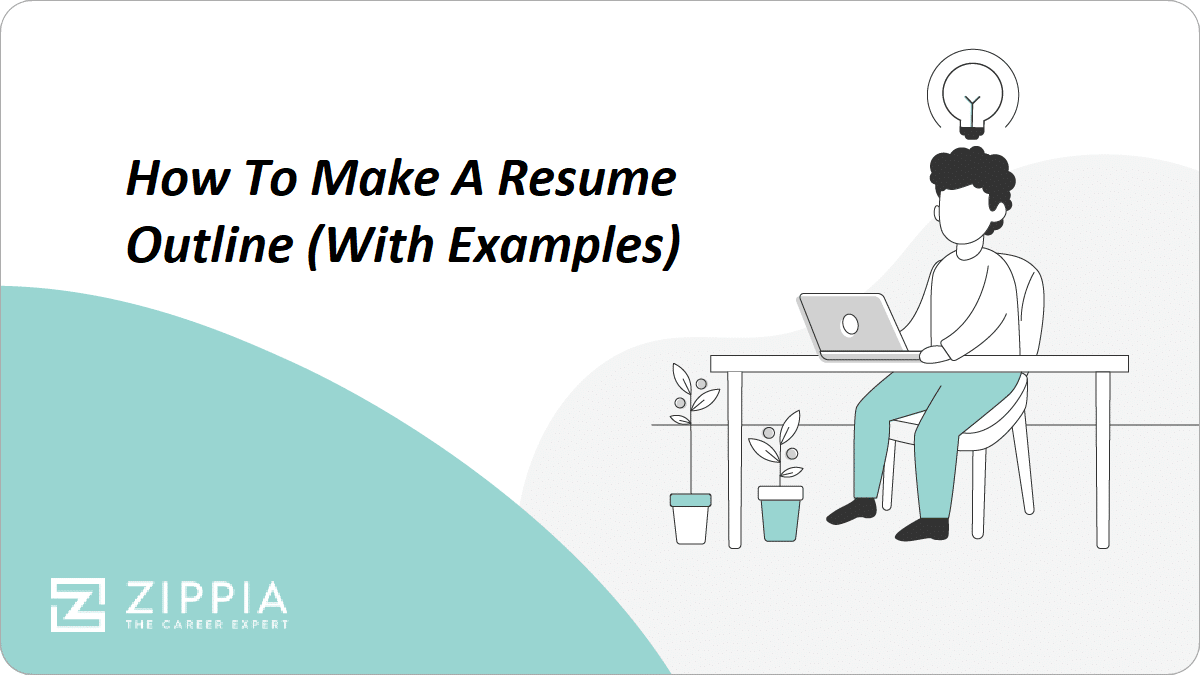
How To Make A Resume Outline (With Examples)

Trade School Vs College: Choosing The Right Career Path For You
- Career Advice >
- Get The Job >
- How To Put Research On Resume Research Experience
How to Put Research Experience on Resume?
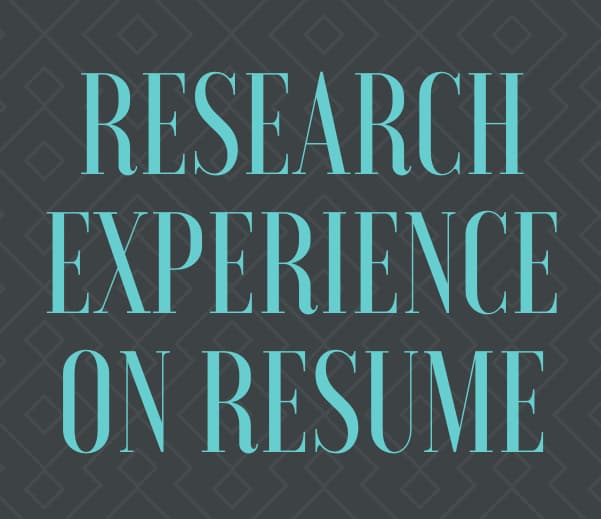
When applying for a job, all your experience matters. Most people love to indicate all the experience they have gained over the years to prove their competence for a particular position. However, many people are confused about how to include research on resumes. Are you a job applicant who has been wondering how to list research on a resume? Or are you completely lost on how to put conferences on resumes ? You’re at the right place.
Keep reading to find out how to include research in your resume.
Does Research Count as Work Experience?
Perhaps, you’re asking yourself, does research count as work experience? The answer is yes. In today’s world, various companies are interested in hiring individuals with probing skills. Employees that display adequate study skills can easily gather information from multiple sources and interpret complex data to find solutions to a problem. This skill is crucial in helping organizations improve the quality of the service they offer.
If you have lab skills to put on your resume as well, we have a different article for that. Check it out !
Also, employees highly skilled in finding information will ensure that the company exceeds customer expectations at every step of the way. There are clear indications that research work counts as experience. And learning how to list research experience on a resume can make you stand out from a long list of applicants.
How to Add Research Experience to Resume?
It’s been established that every applicant will do better by learning how to write about research experience in a resume. But, the real challenge is in the process of learning how to add research to a resume. Do you just go ahead and list all the research skills at your disposal? Or do you blindly include your study portfolio as a separate subheading in your resume? That’s the purpose of this piece. You’ll find out soon enough.
Frequently, resumes are designed such that your current or newer positions are listed first. However, if you’ll add research experience to your resume, then format your CV according to the following subheadings or sections;
- Academic Accomplishments
- Research Experience
- College Experience/Activities
- Volunteer Work
- Presentations and Publications
You should only include all of the above-listed sections if you have the relevant experience to fill them. Don’t feel pressured to make things up and include any false details as a way of stuffing your resume with research experience. The use of falsified information will be considered a breach of trust that may come with some serious consequences.
For those who have teaching experience and certificates, you can learn how to list them on your CV; just visit our blog page.
Before you get started with filling out the important details, make sure to list them. Then, you can go ahead to categorize them. Don’t be rigid about the categories you are filling. Instead, you should be open-minded and prepared to make as many alterations as possible. Some sections may even be deemed unnecessary depending on the time elapsed. For instance, if you have graduated for more than 5 years, adding a section on college activities may feel unnecessary.
What to Include When Putting Research on Resume?
These are some of the essential information to add to your CV to display your ability to handle research work:
Research Mentor
The first step to learning how to put research on the resume is to include information about your research mentor. Adding your mentor to your resume tells your prospective employer that you’ve spent some time learning the ropes on how to research properly. Not only does this tell them that you’ve worked directly with a senior member of your faculty, but it also says exactly who it is.
Don’t be surprised to find that someone may be familiar with your mentor’s work. Now, that’s the type of advantage you’d want to have when seeking employment.
You need to include your mentors;
- Research area
Some students train under more than one mentor or have worked on multiple projects with a single person. If you fall under this category, never hesitate to expressly state the terms and conditions surrounding your mentorship. You may include any projects and achievements you and your study group witnessed. To make your work orderly, you may list out past projects on a year-to-year basis.
And you should always mention your lab experience on your resume, so click for more info about it.

Job Titles and Work Duration
If you have served in any related position before your current job application, it’s a valuable experience that should be included in your CV. Make sure to state your job title or position. Abstain from the use of acronyms that may confuse the reviewer of the resume. For instance, do not call yourself a MUURS Scholar. It’ll be a better idea to say that you are a Student Researcher who is a part of the MU Undergraduate Research Scholars Program. You should also be specific when listing your work period or the duration you spent on the job.
This is where you describe how the entire study went. Take some time to deeply consider the experience you have gained from related positions and mentorships. Make a list of all the things that have contributed to your growth as a researcher. Review each of them closely and ask yourself any of these questions to find out your experience with it:
- What were your best areas?
- Were there any particular lessons learned?
- What are the important aspects you need to improve during your work?
- What skills did you pick up from the research position?
- Did you enjoy your time there?
- What were the results of the research you worked on?
- How long did you spend on the project?
- What was your role during the project?
You may use certain qualifiers to show how much work or effort you put into the research position you held at that time. It’s a simple tactic to remember when putting the research on a resume.
Publications and Presentations
Publications and presentations are evidence of your research work and experience. Even if you have limited publications and presentations to present to your prospective employers, you should include them. They will serve as a symbol to show your competence and capability.
When listing presentations;
- Include the complete list of authors on the project
- Include the project’s full title and official title
- Specify if it was an oral or poster presentation (i.e., you may even describe it based on its duration by calling it a 15-minute presentation on whatever topic)
- Specify its location and events surrounding it
- Include the date
- Include your mentor or whoever co-authored the presentation
When listing publications;
- Include full citation after publishing
- Include in-press recognition – journal date
- Include the date submitted for review and the journal-title
Make sure to update this section regularly. You may also include any publications that were completed after your time as a student.
Examples of Resumes With Research Experience
Role: Research Assistant, University of Missouri (2014 – 2016)
- Participated in insightful and innovative research on cell biology.
- Participated in intensive laboratory work and collaborated with other team members to document details of experiments
- Maintained lab equipment in reasonable working conditions and organized lab operations.
Research Project, Biology Department, University of Western California, December 2020-April 2021
Key participant in a study on the work of Charles Darwin. Confirmed his theory on the triggers of evolution and adaptation of living organisms.
- Collaborated with other team members to identify and evaluate empirical evidence to support the project proposition
- Analyzed the work of other previous authors during the same period to identify any parallels with the topic
- Compile a 40-page report on the team’s findings and present them to the research professor
What Are Research Skills?
Research skills refer to a person’s ability to gather, organize, analyze and interpret information on a specific topic. To put it simply, these skills are the outward manifestation of the research techniques you have built up over time. Probing skills are concerned with searching through numerous information sources and analyzing them to identify which of them contains the solution you need.
What’s the Importance of Research Skills?
If you’re contemplating putting the research on your resume, you probably don’t understand the importance of research skills. These skills are valuable to an employee or employer. They allow the person to look closely at important details, gather information from multiple sources, extract vital evidence and details to support your study, and identify a reasonable solution to the problem.
Employers hire individuals with profound probing skills to:
- Create and compile comprehensive reports on work processes
- Evaluate the performance of competitors
- Track technology changes
- Create new and innovative products for clients
- Identify the demands of customers
- Improve work processes and streamline operations
Adding these skills to your resume gives your employers an idea of what to expect. It tells them that you are capable of suggesting new ideas and helping them create innovative solutions to satisfy consumers.
So, How to List Research Skills on a Resume?
Now that you know how to write a research resume, it’s time to move on to adding these skills to your CV. To do this, you must correctly identify all the related skills you possess. Common examples of these skills include; planning and research, attention to detail, data collection, critical thinking, problem-solving skills, technical skills, project management, and communication.
The following steps will teach you how to add probing skills to your resume:
Look through the job description : The first thing to do is check the job description and find out if the employer is on the market for specific research skills. Go ahead and list all the skills you possess that correlate with the requirements in your job post. You may decide to tailor your CV to comply with your potential employer’s needs, or you may list all your research skills to let them know your overall capability.
Add the skills to the research experience section : The research experience section of your resume is the perfect place to list all your skills. All you have to do is create a new subsection for it.
We’ve clearly emphasized the importance of research experience during job applications. Companies are looking for applicants with these skills because they offer them a chance to improve and offer customers innovative products.
Learning how to write research experience in a resume will give you a much-needed advantage over other applicants. Try it out today. It could be the key to securing your dream job. But if you feel you need help with your resume, check these services that assist with resume writing.

Education Writer
One of our team members is Alina Burakova. She has vast experience in reviewing career and education-related websites. Being a little shy, Alina dislikes writing about herself too much, so here is her short bio. In 2010, she graduated from ...
Relevant articles

Ph.D. ABD is a term for Ph.D. students who have done everything, but their dissertation uses. They use this term especially when they need to apply for a job and update their education history and qualifications. People usually wonder, “Should I put my Ph.D. on a resume if I’m ABD?” to add value to their…
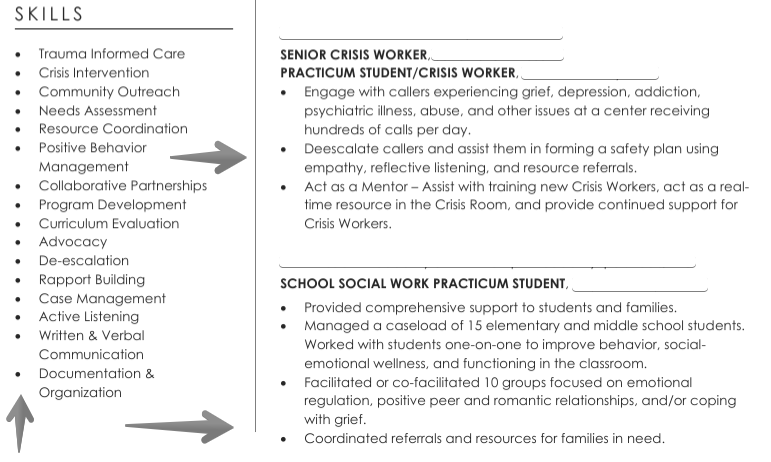
The process of writing an effective resume isn’t one that can be rushed. Having good formatting and layout as well as carefully targeting each job application is crucial. However, one simple feature can make a huge difference for everyone – excellent resume bullet points. “If opportunity doesn’t knock build a door” – Milton Berle A…
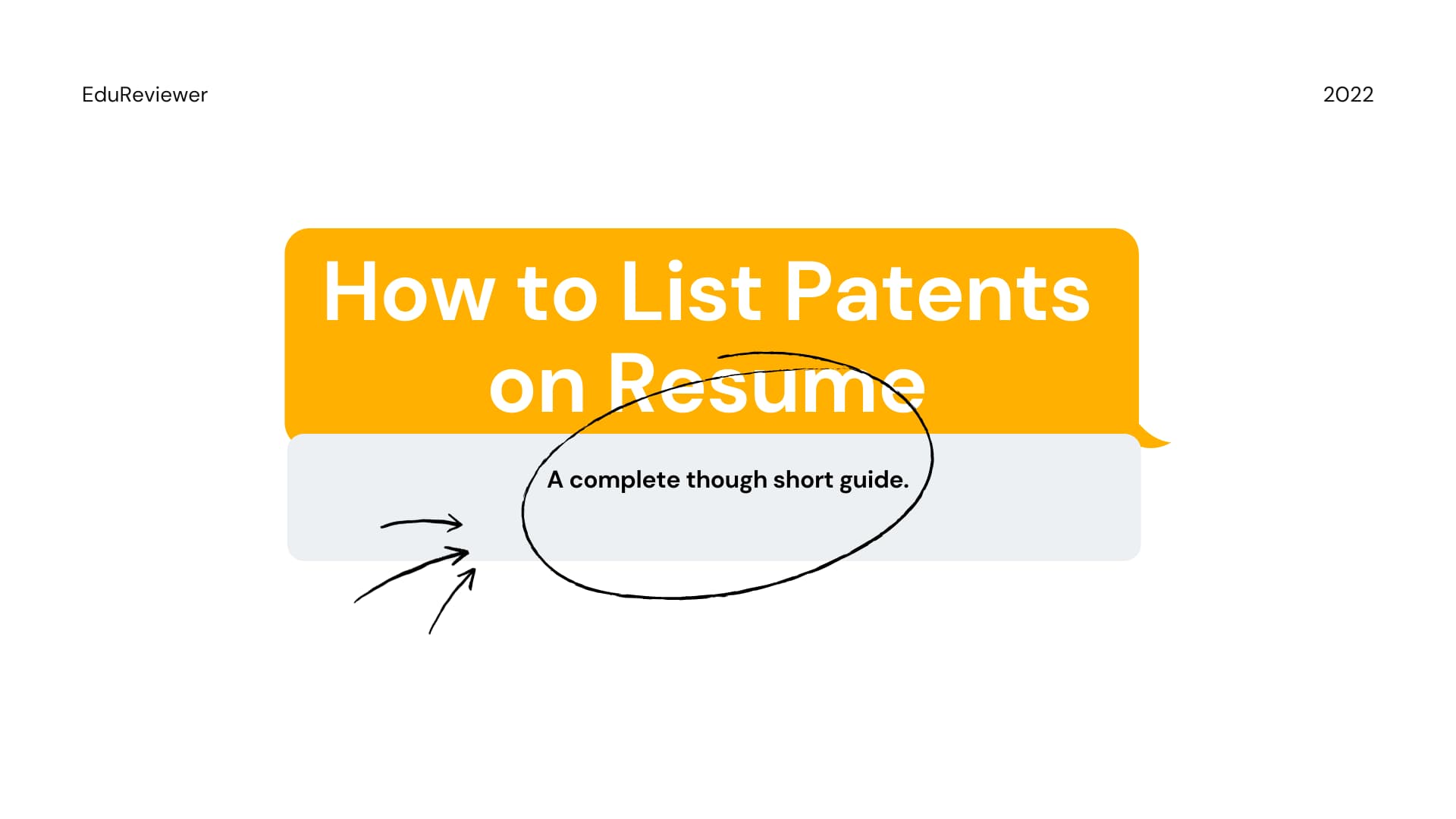
When crafting a high-quality and impressive resume, one has to make sure to include everything that showcases their professional achievements and skills. While writing about relevant jobs and startup experience on resume is easier, it’s not always clear how to include some other things, like patents. If you’re also wondering how to list patents on…
Your email address will not be published. Required fields are marked *
Admission Consulting The Five Best Graduate School Admissions Consultants Reviewed
Resume Writing CompTIA Certification on Resume: How to Put It [+Examples]
Resume Writing Can You Put Udemy On Resume?

- Knowledge Base
- Free Resume Templates
- Resume Builder
- Resume Examples
- Free Resume Review
Should I include research experience on my resume?
If this is you debating whether or not you should include your research experience on your resume, you’ve come to the right place.
When it comes to landing your dream job, having relevant experience on your resume can make all the difference.
This is especially true in the field of research, where employers are often looking for candidates with strong skills and experience.
In fact, surveys show that 65% of recruiters prefer their candidates to have relevant work experience. when evaluating job candidates.
So if you are seeking jobs related to research, it is indeed crucial to showcase your research experience on your resume in a way that can help you stand out from other candidates and increase your chances of landing an interview.
In this article, we'll discuss the key strategies for highlighting your research experience on your resume, including the types of information to include, how to structure your resume, and other tips for effectively showcasing your skills and experience.
- What is research experience on a resume and why is research experience important?
- How to put research experience on a resume?
- Where to put research experience on a resume?
- What is an example of research experience?
What is Research Experience on Resume and Why is it Important?
Research experience refers to any experience you have had conducting research, whether as part of an academic course, an internship, or a job.
Depending on the industry, it could involve conducting literature reviews, collecting and analyzing data, performing experiments, and presenting research findings.
Research experience can be incredibly valuable in a variety of fields, including science, engineering, healthcare, education, and social sciences. It shows potential employers that you have the skills and expertise needed to work in a research-oriented role.
Including research experience on your resume can be highly advantageous. Here are some reasons why:
Demonstrates critical thinking and problem-solving skills: Research requires careful analysis and critical thinking, demonstrating your ability to approach complex problems and develop solutions.
Shows attention to detail: Conducting research often requires meticulous attention to detail and a focus on accuracy, qualities that are highly valued in many industries.
Highlights technical skills: Depending on the type of research you conducted, you may have developed technical skills, such as data analysis, statistical analysis, or programming.
Shows initiative and independence: Research often involves working independently and taking the initiative to design and execute research projects. This shows potential employers that you are self-motivated and can take the lead when necessary.
Also Read: How to write a research assistant resume in 2023?

How to Describe Research Experience on Resume?
To make the most of your research experience, it's important to know how to include it on your resume effectively. Here are some tips to help you get started:
Choose the Right Format
There are several different resume formats you can use, including chronological, functional, and combination formats.
When highlighting your research experience, the chronological format is typically the best choice. This format lists your research experience in reverse chronological order, starting with your most recent experience.
Tailor Your Resume to the Job Description
When crafting your resume, make sure to tailor your research experience to the job description you're applying for. This means highlighting the research experience that is most relevant to the position you're seeking.
For instance, if you're applying for a research position at a company, and the job description specifically mentions experience with qualitative research methods. You must highlight your experience with these research methods on your resume.
You can write, “Experienced in qualitative research methods, including in-depth interviews, focus groups, and content analysis.”
Use Action-Oriented Language
Ensure to use action-oriented language that emphasizes your accomplishments and responsibilities while describing your research experience on your resume.
This means you need to use strong verbs and quantify your achievements wherever possible. Here are a few examples:
- Instead of writing "Conducted research on topic X," write "Led a research project on topic X, resulting in a published paper in Journal Y."
- Rather than writing "Assisted with data analysis," write "Developed and implemented a data analysis plan that identified key trends and insights."
By using action-oriented language and emphasizing your specific accomplishments and skills, you can demonstrate to the employer that you're a proactive and results-driven candidate.
Thereby, helping you increase your chances of landing an interview and ultimately getting the job.
Highlight Your Technical Skills
If you developed technical skills through your research experience, make sure to highlight them on your resume.
This could include experience with statistical software, programming languages, or laboratory techniques.
Provide Specific Examples
Rather than blatantly listing your research experience on your resume, provide specific examples of your accomplishments and the results of your research.
This can help potential employers see the impact of your work and understand the skills you bring to the table better. It also adds credibility to your research skills and experiences.
Also Read: How to build a stellar academic resume?
Where to Put Research Experience on Resume?
When it comes to where to put research experience on your resume, there are a few options:
Under a "Research Experience" section: This is the most straightforward option and allows you to list your research experience and projects in a dedicated section. Be sure to include the project title, your role, the duration, and any relevant details such as methodology or results.
Under your "Experience" section: If your research experience is relevant to your previous jobs or internships, you can list it under the corresponding job entry. For example, if you conducted research as part of an internship or a job, you could include a bullet point under that entry that describes your research experience.
In a separate "Publications" or "Presentations" section: If you have published research papers or presented at conferences, you can include them in a separate section that highlights these accomplishments. Be sure to include the title of the paper or presentation, the conference or journal name, and the date.
Also Read: How to showcase work experience effectively in a resume in 2023?
Examples of Research Experience on Resumes
For your reference, given below are some examples of research experience on a resume:
- Conducted research on the effectiveness of a new cancer treatment, including developing research protocols, collecting and analyzing data, and presenting findings to a team of oncologists.
- Collaborated with a team of researchers to conduct a qualitative study on the experiences of women in STEM fields, including conducting interviews and focus groups, analyzing data using NVivo software, and presenting findings at a national conference.
- Completed an independent research project on the impact of social media on mental health, including conducting a literature review, designing and administering a survey, and analyzing data using SPSS software.
- Assisted a team of researchers in analyzing data from a large-scale epidemiological study, including cleaning and formatting data, running statistical analyses, and creating visualizations using R software.
- Participated in a summer research program, working with a mentor to conduct research on the impact of climate change on coastal ecosystems, including collecting and analyzing data, writing reports, and presenting findings at a research symposium.
- Conducted a research project as part of a senior thesis, exploring the relationship between exercise and cognitive function in older adults, including designing and implementing a study, collecting and analyzing data, and presenting findings at a departmental conference.
Also Read: What is the difference between a CV and a resume?
Key Takeaways
- What is research experience on a resume and why is it important?
Research experience encompasses conducting research in various settings, such as academic courses, internships, or jobs, which can provide critical thinking and problem-solving skills, attention to detail, technical skills, and show initiative and independence. By including research experience on a resume, potential employers can gain insight into the candidate's expertise, skills, and suitability for research-oriented roles, which can be beneficial in many industries.
- How to list research experience on a resume?
To highlight your research experience effectively, it is crucial to choose the right format, tailor your resume to the job description, use action-oriented language, highlight your technical skills, and provide specific examples of your accomplishments in your research.
There are 3 options when it comes to placing your research experience on your resume - a dedicated "Research Experience" section, your "Experience" section, or in a separate "Publications" or "Presentations" section. Wherever you decide to showcase them, ensure to include details like project title, duration, methodology, or results.
If you want to build a stellar resume that showcases your research experience perfectly, use Hiration’s ChatGPT-powered resume builder with 24x7 chat support. You can also reach us at [email protected] if you have any queries.

Share this blog
Subscribe to Free Resume Writing Blog by Hiration
Get the latest posts delivered right to your inbox
Stay up to date! Get all the latest & greatest posts delivered straight to your inbox
Is Your Resume ATS Friendly To Get Shortlisted?
Upload your resume for a free expert review.


- Self & Career Exploration
- Networking & Relationship Building
- Resume, CV & Cover Letter
- Interviewing
- Internship & Job Fairs
- Blue Chip Leadership Experience
- Experiential Learning
- Research Experiences
- Transferable Skills
- Functional Skills
- Online Profiles
- Offer Evaluation & Negotiation
- Arts & Media
- Commerce & Management
- Data & Technology
- Education & Social Services
- Engineering & Infrastructure
- Environment & Resources
- Global Impact & Public Service
- Health & Biosciences
- Law & Justice
- Research & Academia
- Recent Alumni
- Other Alumni Interest Areas
- People of Color
- First Generation
- International
- Faculty & Staff
- Parents & Families
Tips for Adding Research to Your Resume
- Share This: Share Tips for Adding Research to Your Resume on Facebook Share Tips for Adding Research to Your Resume on LinkedIn Share Tips for Adding Research to Your Resume on X
Getting involved in research is a unique experience that can help you build important skill for school and beyond! Once you get started, it’s important to think about adding it to your resume. When applying to future research positions, jobs, internships, and/or graduate school, it’s important to show off your experience. You will want to show that you have this kind of experience and also show off the skills that you have used/developed in your research position.
What You Need to Include
Its important to summarize the basic details of each position on your resume so that whoever reads it understands what each position was before they even read your bullet points.
Your research experience should have; • Your Role/Title Example: Research Assistant, Student Lab Member, etc.
• Lab and University Name Example: Wildcat Lab, University of Arizona
• City/State, not the full address! Example: Tucson, AZ
• Start Month/Year – End Month/Year. Examples: February 2023 – Present | January 2022 – May 2022
Putting it all together! Research Assistant | Tucson, AZ Wildcat Lab, University of Arizona | February 2023 – Present
Next – Writing About Your Experience s
Writing about your experience is important because this is the part that shows off what you did in your research experience! It’s important to write in a way that shows off the skills you used in the role. This is why we recommend writing in a style called APR format.
APR stands for Action – Project/Problem – Results. This format gives the employer, or whoever is reading your resume, enough information to see what you did, which skills you used, and why or how the task was completed. You can review more about APR format on the Resume Section on our website.
When preparing to write this section, think about what you did in your research position. What did you do? Why were you doing it? What skills did you use? Why or How was it completed? These are some questions to think about why writing about your experience. Then, use bullet points to list specific roles, tasks, or accomplishments.
Example Bullet Points: • Code participants answers in Excel to ensure data is HIPAA compliance • Analyze data using IBM SPSS to create correlation models and to find significant numbers • Present at weekly meetings to share findings with research team members
In these examples, you can see each bullet point includes skills such as coding, analyzing, programming (IBM SPSS), and communication.
Putting It On The Page
Once you have finished your bullet points, you can add them to your resume! Students typically put their research experience in a section that allows these activities to stand out. If you feel like your research is something that you want to highlight, you can create a specific section for it!
Give it a unique header such as Lab Experience , Research Experience, etc. and you’re ready to go!
Example Resumes with Research
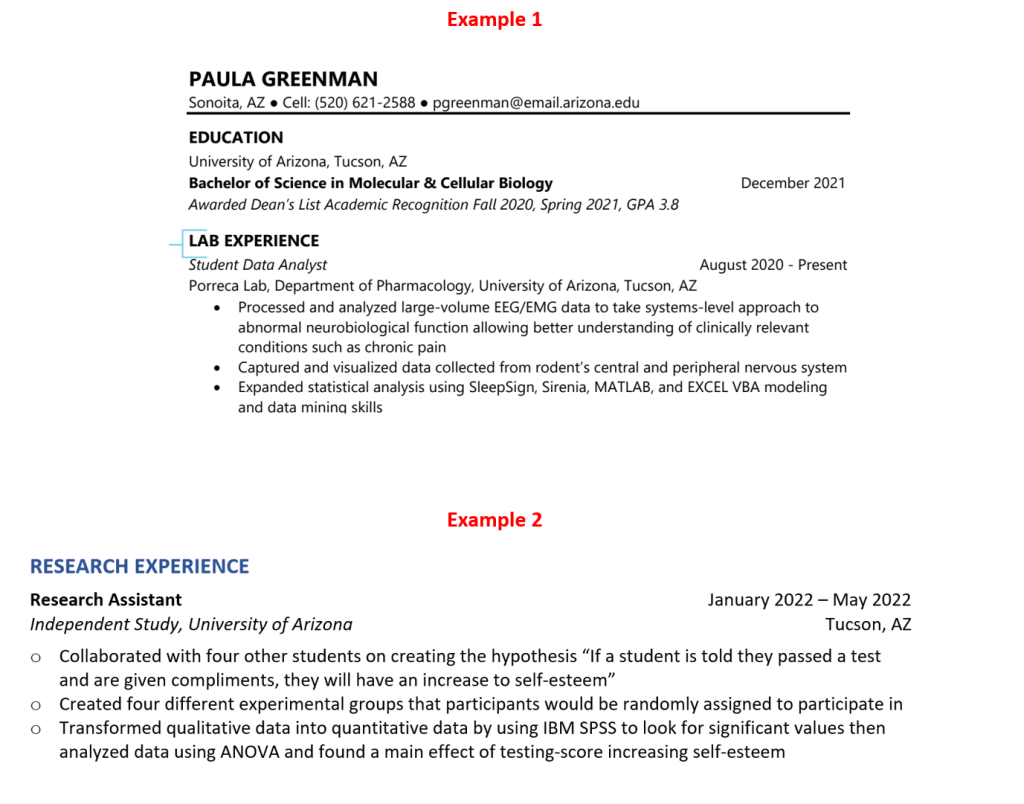
Adding Your Research Skills
Remember, you can also add your research skills to your skills section, if you have one! This is a good place to directly state the skills you used in your research experience. It’s important to state your technical skills, such as programming, equipment, etc. and transferrable skills such as communication, data analysis, etc.
Example Skills Sections
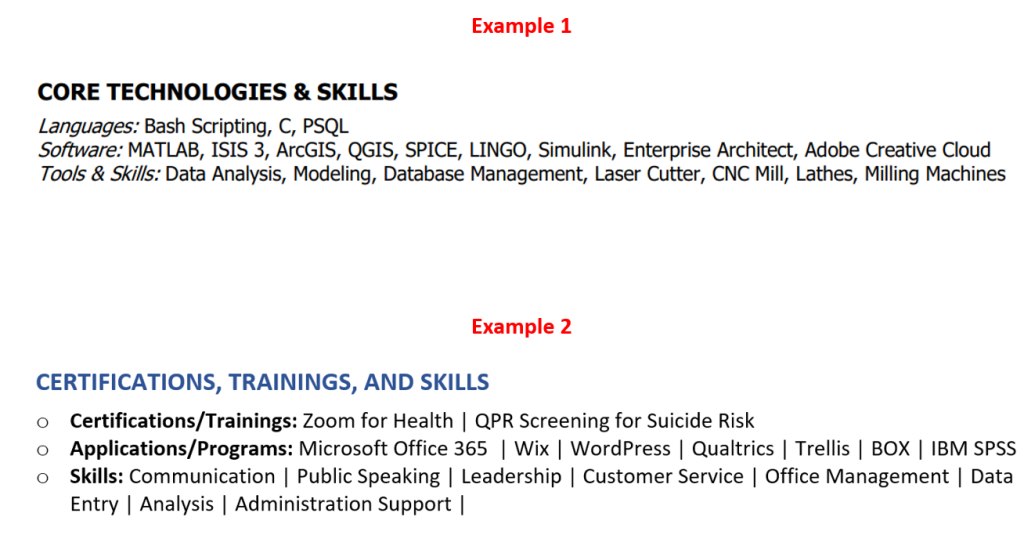
Resume Help
Get more resume information, templates, and more on our website or make an appointment with a Career Peer Coach , who can help you create a new resume or review your current one!
We respectfully acknowledge the University of Arizona is on the land and territories of Indigenous peoples. Today, Arizona is home to 22 federally recognized tribes, with Tucson being home to the O'odham and the Yaqui. Committed to diversity and inclusion, the University strives to build sustainable relationships with sovereign Native Nations and Indigenous communities through education offerings, partnerships, and community service.

IMAGES
VIDEO
COMMENTS
Here’s how to list your research experience on a resume, with examples you can follow. Research experience isn’t just for science and academia. Research is a valuable skill that’s required for a number of roles and industries, which means it almost certainly has a place on your resume.
Sep 13, 2024 · Learn research skills and why they're important, gain tops on how to include them on a resume, and get examples you can reference when creating your own.
Aug 14, 2023 · To include your research on your resume, you should gather all the necessary information and then quantify your accomplishments to fit into specific sections. Here is a more detailed list of how to write about research experience in resume: Gather all the necessary information.
Sep 22, 2023 · Research experience in your resume is a powerful way to demonstrate your analytical insight and unique expertise. So where should it go? And what's the best approach to describe, quantify, and showcase these accomplishments? Research experience showcases your dedication to and in-depth understanding of your field.
Feb 13, 2024 · If you're applying for a research role, listing relevant research experience on your resume often makes you a more competitive candidate. Learning how to include research work on your resume and reviewing sample resumes can help you create an application document to get the desired research job.
Dec 4, 2024 · Whether you’re writing a CV to apply to academia, for a grant application or to pursue consultant opportunities, a well-made research CV will help you stand out. In this guide, you’ll find tips and examples to showcase your expertise in machine learning, data collection, and project management, among other research skills. Marketing Researcher.
Feb 5, 2024 · Are you interested in putting research on resume? This article explains how to include experience on your resume to look good to potential employers.
May 4, 2023 · In this article, we'll discuss the key strategies for highlighting your research experience on your resume, including the types of information to include, how to structure your resume, and other tips for effectively showcasing your skills and experience.
Mar 2, 2023 · Once you have finished your bullet points, you can add them to your resume! Students typically put their research experience in a section that allows these activities to stand out. If you feel like your research is something that you want to highlight, you can create a specific section for it!
Aug 17, 2024 · In this article, we explain how to include research experience in a resume, explain why it's important, and present several tips, a template, and an example you can use for reference when writing your own.